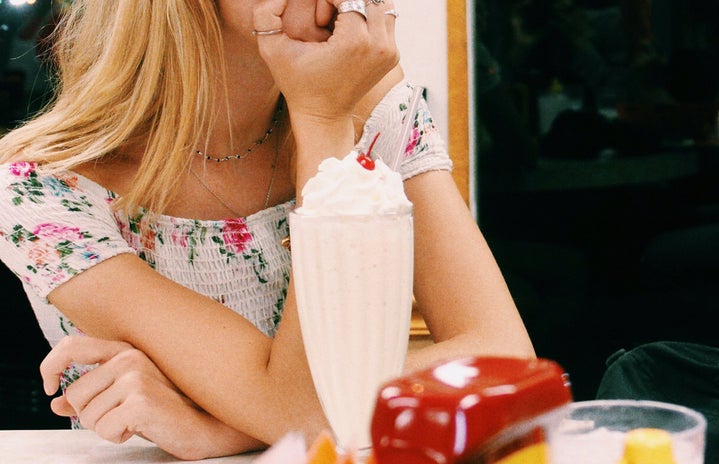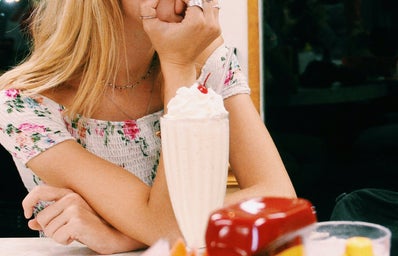*Trigger warning: this article mentions disordered eating.
Unless you’ve been living under a rock since mid-2018, you’ve probably heard a thing or two about TikTok. In its lifespan thus far, the video-sharing platform has become the pinnacle of contemporary youth culture with its endless stream of content. The app has given rise to a number of whirlwind trends, memes and subcultures—some of which have revealed themselves to be incredibly toxic. One of the most concerning patterns that can be seen on the app is how certain videos and trends can foster disordered eating.
Take the originally benign trend, “What I Eat in a Day,” for one. Many are perfectly normal, if not enjoyable, videos with images of delicious-looking food that some might find satisfying to watch. Perhaps in mimicry of this trend, a number of videos have risen to popularity starting off appearing to be a normal “What I Eat in a Day” video only to reveal the only thing they ate was a cup of ice, a stick gum or an otherwise concerningly low amount of nutrients. Whether or not this type of video is designed to be satirical, the app has too strong of influence for this type of eating to be glamorized.

Another example is the infamous Addison Rae/Prom Queen dance video. Rae, an influencer with more than 50 million followers, posted a video dancing to the song “Prom Queen” by Beach Bunny. The song tells the story of a young girl struggling to accept herself for who she is and, in an attempt to make herself “perfect,” developing disordered eating habits. The video was probably not created by Rae in an attempt to associate positivity with eating disorders by dancing to the song with a smile, but more likely just a tactless choice of song to back a prom-themed video. Regardless, many members of the TikTok community took the video as an opportunity to shame Rae for ‘glamorizing’ eating disorders by responding with stories of their own struggles with disordered eating. Yes, Addison Rae and her management probably should have chosen a different song, but the chain reaction the video caused created a breeding ground for the competitive nature of eating disorders. Many who struggle with those illnesses have an intense need to compete with others, and the virality of this situation puts it all out in the open.
This incredibly toxic culture is reminiscent of social media platforms of late, namely Tumblr, where young people (particularly girls) were able to compare themselves to one another and document the highs and lows of their disorder. If TikTok, a largely more influential platform than Tumblr, begins to foster a similar kind of community and begins to normalize disordered eating behaviors, the negative influence on young individuals will be immeasurable. Even as time has passed and beauty standards have changed since Tumblr’s eating disorder community was at its peak, it seems as though social media might always be the catalyst.
If you or someone important to you is struggling with an eating disorder, consider contacting the National Eating Disorder Association Helpline.



